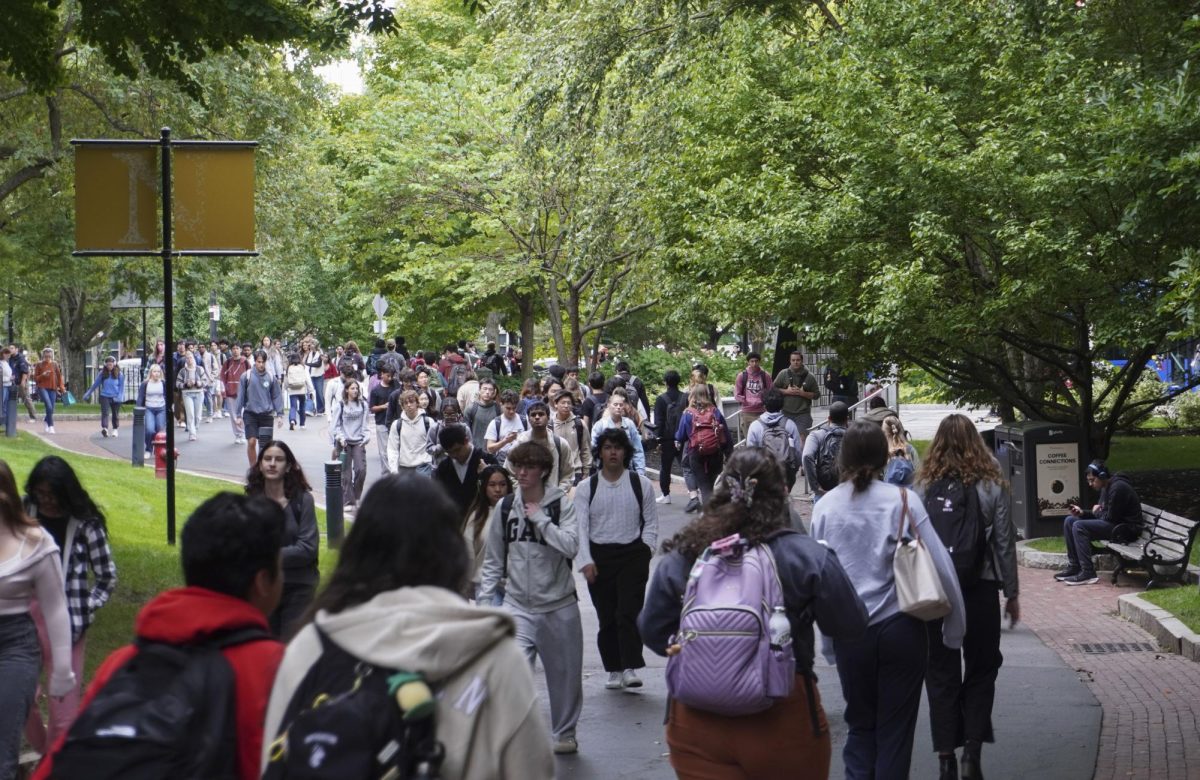With Super Tuesday quickly approaching, many students and faculty have their own reasons for voting in the primary elections.
“[The primaries] are the opportunity for a citizen to vote for someone who they agree with upon many issues. It’s about picking a potential president that isn’t just from the party of your liking, but is also someone who would represent you most,” said Dan Abrams, a sophomore environmental science major.
The primaries are important because they choose the candidates for the first-post Iraq war presidency, said William Miles, a political science professor.
“[Students should care] because the future of the role of the United States is at stake,” Miles said.
On campus, the NU College Democrats have been reaching out and having meetings to plan different events. They have distributed handouts, have held rallies and have been active in phone banks last semester and this semester, said Josh Robin, president of the NU College Democrats and a middler political science major.
“So far, a lot of students have made strong personal commitments throughout the campaigns,” Robin said. “These efforts have made an impact. The NU Democrats will stay active throughout the rest of the campaign.”
In September 2006, the Democrats formed different groups for the candidates, like “NU for Obama.” These groups are available for students who want to become involved with the election.
The NU Democrats do not endorse a particular candidate. They are working to promote all candidates. The group has been one of the most active college groups in Boston, Robin said.
“I would challenge anyone, with the exclusion of Harvard, who [believes they are] more active than NU,” Robin said. “We do as much or more than all of those schools. We are very active here and made a lot of effort here to speak out.”
Even though the leading presidential candidates have neglected to emphasize student issues like college tuition as much as they address other issues, like the war in Iraq and the economy, many students are still interested in voting.
“It’s extremely important for students/teenagers/young folk to vote in the primaries. It is our future, and we now have a say in how things will be run,” said Anna Sanders, a freshman communication studies major. “Voting for your candidate gives you a voice, and one vote can change things. Also, things are not set in stone. While your candidate might not be the president, there is still a chance that he or she will be the vice president. We totally need to voice our opinions.” One reason why students do not vote in the primary elections is not because they do not want to, but because they do not know how to, Abrams said.
“A lot of people get confused about where they’re registered to vote (home-state or not) and how to receive an absentee ballot. And frankly, a lot of students don’t find it that important to go hunting around for all of this information when they have three tests coming up,” he said.
According to her website, Democratic presidential candidate Hillary Clinton plans to make college more affordable and accessible so that every American who has earned it and wants to go has the chance to obtain a college degree. Such plans include creating a new $3,500 college tax credit and increasing the maximum Pell Grant. According to Democratic candidate Barack Obama’s website, in order to enhance higher education, he will simplify the application process for student financial aid.
The NU College Republicans have not been working to promote the candidates for the primary elections because the members support different candidates, said Adam Spang, president of the NU Republicans and a middler political science major.
“We really couldn’t come to an agreement on who to help out and support,” Spang said. “We had some opportunities to work for Romney and Giuliani, but most of the group is split so we couldn’t get a bunch of people to go out and do one thing. It wouldn’t have worked out too well.”
The group will probably end up having voter registration drives for the November elections, and they will also set up tables that will have information about the candidates, Spang said.
“We can’t really pick what issues [the candidates] talk about because that is given and chosen to them by the media. I would like to hear more about the Iraq War,” Spang said. “They really don’t talk about higher education a lot – it’s not really at the forefront. Higher education is irrelevant to [NU Republicans] because the changes that could happen won’t happen to us while were here. We’re looking for a good economy and job opportunities for when we graduate.”
According to his website, Republican candidate John McCain will prohibit new cell phone taxes.
Republican candidate Mitt Romney’s website states his belief in education issues for students in kindergarten through 12th grade. Such issues include a proposed federal home schooling tax credit and improvements upon and the enhancement of the No Child Left Behind Act.
“If you look at the numbers for students, voting has been very high in Iowa. Obama was propelled by votes in young people, and in New Hampshire Hillary was helped by it as well,” Robin said. “Students have neglected [voting] in the past, but now they’re not just hanging out and not paying attention; they’re having an impact.”










